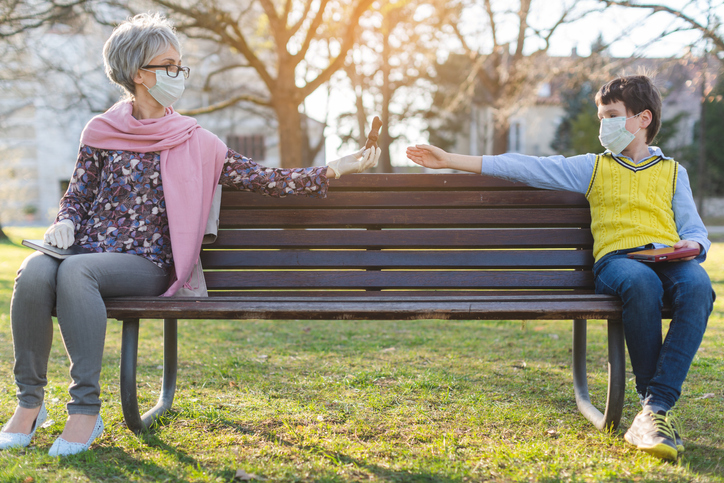
Photo for representational purpose only. iStock
London, October 14
Empathy for vulnerable people in risk groups motivates others to use face masks and keep distance, which can help prevent the spread of Covid-19, say researchers.
"We saw that empathy for the most vulnerable is an important factor, and that it can be used actively to combat the pandemic," said study author Stefan Pfattheicher from Aarhus University in the UK.
"Our results suggest that we need stories of real people suffering. It's not enough just to tell us that we must keep distance and wear a face mask for the sake of vulnerable citizens in general," the authors wrote.
"If we're confronted with a specific person who is vulnerable to Covid-19, it is clear that empathy is strengthened, and that we are more likely to follow the guidelines," they noted.
"I believe that policy makers can use our new knowledge in their efforts to get more people to follow the guidelines - and ultimately save lives," Pfattheicher added.
For the study, published in the journal Psychological Science, the research team initially tested the relationship between participants' empathy and their attitude to social distancing.
They tested this in two questionnaire-based studies in the US, the UK, and Germany. For example, on a scale from 1 to 5, participants were asked how concerned they are about those who are most vulnerable to the coronavirus.
Subsequently, they were asked about the extent to which they themselves avoid social contact due to the coronavirus. The relationship is clear. The higher the degree of empathy, the greater the focus on reducing social contact.
Equally importantly, the study shows that it is possible to induce empathy among people, and thereby also make more people willing to keep social distance and wear face masks.
In two experiments, the researchers tested the differences in participants' willingness to follow the two recommendations, depending on whether they are just informed about the effect of the two initiatives, or whether they are also presented with a vulnerable person.
In both experiments, the participants were presented with people who, each in their own way, have been affected by and suffer from the coronavirus.
There were also control groups who only received information about the effect of maintaining social distance and wearing face masks.
The findings showed that the participants who received the story about people suffering from the coronavirus reported a higher degree of empathy. And also, a greater willingness to physically distance and use face masks. — IANS
Join Whatsapp Channel of The Tribune for latest updates.



























